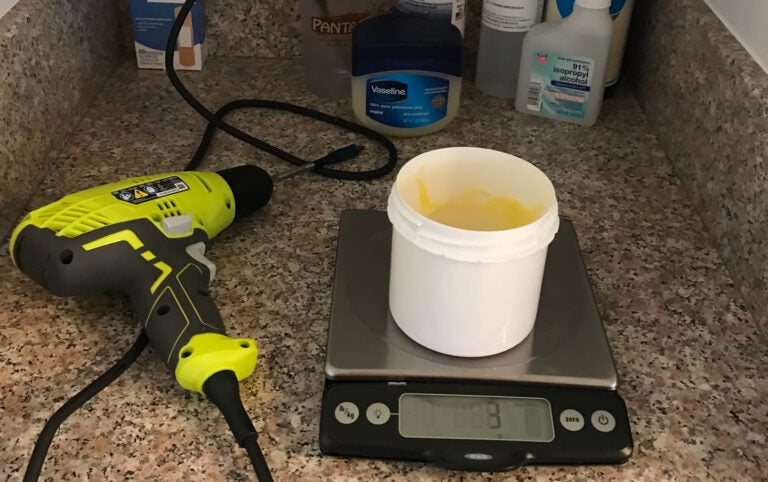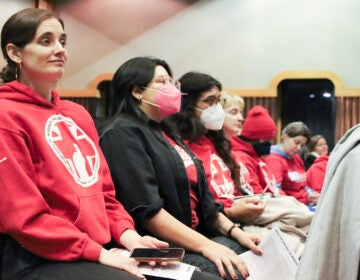The DIY Medicine Movement
We look at the DIY medicine movement, and what’s prompting a growing number of patients to experiment with treatments on their own.
Listen 48:41
After years of unsuccessful treatment for an antimicrobial-resistant skin infection, Bradley Burnam developed a novel wound-care treatment in his garage. (Courtesy of Bradley Burnam)
DIY culture is all about empowerment — teaching yourself new skills to do things on your own, like retiling your bathroom or fixing a leaky faucet. But what happens when the DIY approach extends to something as complicated and potentially dangerous as medicine?
On this episode, we take a look at the growing number of patients who are taking health care into their own hands — experimenting with DIY treatments ranging from brain stimulation to homemade wound ointments. We hear about a man who developed a cure for his persistent infection in his garage, find out why so many people are flocking to DIY medicine, and learn how one researcher carefully evaluates his patients’ DIY approaches.
ALSO HEARD:
- Bradley Burnam talks about his nightmarish, years-long skin infection that inspired him to develop his own wound treatment in his garage. Burnam is the founder of Turn Therapeutics, a pharmaceutical and medical device company focused on advanced wound care.
- University of Pennsylvania medical ethicist Anna Wexler discusses her explorations of the DIY medicine movement, what motivates its members, and the thorny ethical challenges it creates for scientists and doctors.
- We’ve all heard the basics of good nutrition — eat your fruits and veggies, make sure to get enough fiber, minimize sweets — but what if healthy eating meant something different for each person? What if we could tailor our diets to the specific needs and sensitivities of our bodies to not only improve health, but even treat chronic illnesses? We talk about those issues with Reyna Gobel, and other experts in a field known as “precision nutrition.”
WHYY is your source for fact-based, in-depth journalism and information. As a nonprofit organization, we rely on financial support from readers like you. Please give today.






